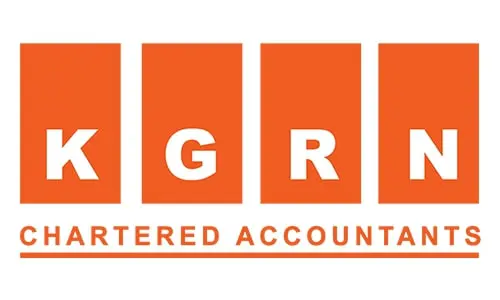The United Arab Emirates (UAE) has made the Value-Added Tax (VAT) mandatory for virtually all enterprises today. In light of this, the Federal Tax Authority (FTA) has established guidelines that allow businesses to register for value-added tax (VAT) at no cost. The applications can be submitted on the official website of the FTA at any time of the day or night.
There is a question that arises here, and that is the question of what the requirements are that every company should comply with in order to successfully register and other supporting facts. You should not be concerned because the article is going to assist you in learning everything from A to Z.
VAT Registration for Businesses in the UAE Has Been Made Easier
The Federal Tax Authority states that a taxable person’s authorized representative can register for value-added tax if they complete the proper procedures. In order to effectively comply with the requirements, companies typically seek the aid of top VAT consultation in Dubai professionals. This is because most business owners lack knowledge of the Value-Added-Tax (VAT) system.
Once registration is complete, the rest of the compliance process may proceed with more confidence if you have a firm knowledge of the underlying method. Therefore, this is the procedure to take in order to sign up for VAT:
Before deciding to register for VAT in the UAE, you must first determine whether or not your business is eligible to pay VAT there.
- The VAT authorities mandates registration for businesses with yearly revenues over AED 375,000.
- Companies with annual sales between AED 187,500 and AED 375,000 are required by law to register voluntarily.
- Any business with taxable sales in excess of AED 187,500 must register with the UAE VAT Administration.
If your business’s annual revenue is below the VAT registration level, you may still choose to voluntarily register.
The Procedures Involved in Registering for VAT
Depending on your particular region and circumstances, the steps that are required to register for VAT may be somewhat different from one another. On the other hand, the following is a summary of the conventional procedures:
The process of determining eligibility:
- Check to see if your company passes the statutory registration threshold by calculating the amount of taxable supplies and imports that it brings in each year. This criterion differs from country to country.
- Take into consideration the possibility of voluntarily registering for taxes if your taxable expenses are substantial, even if you do not meet the obligatory threshold. These are some of the potential advantages.
Please collect the necessary documents:
Make sure you have all of the relevant documentation ready, such as a trade license, financial statements, bank data, ownership and management identification credentials, and so on. The particular documents differ from state to state and from type of business to type of business.
Select the method of registration you will use:
- The majority of nations provide online registration on the website of their respective tax authorities. Not only that, but some may also provide assistance centers or physical forms.
- Pick the approach that is most suitable for your level of comfort and the resources you have available.
Finish filling out the applicant registration form:
- On the registration form, you are expected to provide all of the needed information in an authentic and truthful manner. Among the information that could be included here are specifics regarding your business activity, anticipated turnover, and accounting period of choice.
- Please upload the required documents in the format that has been stated.
- At this stage, it is possible that certain nations will demand an electronic signature.
Send in your online application and wait for it to be processed:
- Either submit your application through the online system or hand deliver your papers and documentation in person.
- Your application will be reviewed by the tax authority, and if additional information is required, they may ask for those details.
- It is possible for processing times to differ depending on your location as well as the level of difficulty of your application.
Acquire your VAT registration number by the following means:
After completing the registration process successfully, you will be given a one-of-a-kind VAT registration number.
Documents Required for VAT Registration Are as Follows:
The documents required for VAT registration in the UAE can vary slightly depending on your specific business type and situation. However, here’s a general list of the most common documents you’ll need:
Mandatory Documents:
- Copy of a valid Trade License
- Passport copies of owners/shareholders/managers (not expired)
- Emirates ID copies of owners/shareholders/managers (not expired)
- Contact details of the company (full address and PO Box)
- Authorized signatory details (Mobile number and email)
- Bank details (Account number, account name, bank name, branch name & IBAN)
- Turnover declaration for the last 12 months: Signed, stamped, and printed on company letterhead
- Memorandum of Association (MOA): Not required for sole establishments
All of the aforementioned items must be submitted by organizations in order to finalize the registration process. Failure to produce paperwork may result in a value-added tax penalty in the United Arab Emirates. Therefore, it is essential to maintain a comprehensive record of your organization in order to lessen the possibility of such threats developing in your business.
Requirements for Registration Additional Disclosure Information
In order to finish the registration procedure, it requires to supply the following additional data:
- The company’s street address or PO Box
- The expected income for the following month is forecasted.
- Data on the flow of products and services across international borders.
- The conditions of the tax classification and the tax ID
Creation of an Account for an Online Service
The registration process for VAT compliance begins with the establishment of a user account on the Federal Tax Administration’s (FTA) website. To be considered, businesses must register using an email account such as Yahoo or Gmail. The appropriate procedure is as follows:
- Go to https://eservices.tax.gov.ae/en-us/signup.html to register for eServices.
- Fill out the form with all of the necessary information and create a safe password as well as a security question.
- Check and double-check the email address that has been sent to your inbox.
A VAT Registration Application Must Be Submitted.
Creating an account is a crucial first step in getting your business ready to follow VAT rules. Submitting an application for VAT is the next step after completing the account creation process. The objectives for each level are simple and include the following:
- After visiting the URL https://eservices.tax.gov.ae/en-us/login, you successfully accessed your e-Service account.
- Visit the “Getting Started Guide” page and read it in its entirety to learn more about value-added tax.
- After reviewing the guidelines, you may proceed by clicking the “Confirm” button.
- There are several sections in this application, including “About the applicant,” “Data of the applicant,” “Contact information,” “Banking information,” “Business connections,” “About the VAT registration,” “Declaration,” and “Review and submit.”
- The VAT form has eight sections, each of which must be filled out with information specific to your business.
- After signing up, you’ll receive email and text message notifications when your TRN is available for pickup.
All taxable people and organizations are expected to file VAT returns with the FTA, so after you’ve registered for VAT compliance you’ll need to figure out what your obligations are. It’s important to learn as much as possible about submitting a VAT Return in the United Arab Emirates to prevent making any mistakes.
Value-Added Tax (VAT) registration in the UAE can be completed as follows:
Check your eligibility here: Value-added tax registration is mandatory only for enterprises that satisfy specific requirements. You must register for Value Added Tax if your company has an annual income of more than AED 375,000. Registration is not required if your yearly income is less than this amount, however it is possible.
Gather the following information: Please have the following materials and information on hand before beginning the registration process:
- Articles of Incorporation and Company Registration
- The International Business Account Number (IBAN) of the company International Identification Document (ID) or Passport (Passport) copies of the business owners and partners
Create an account on the FTA website by entering the following information: Visit tax.gov.ae, the FTA’s official website, and register for an account by filling out the online form. You must use this portal to submit your application for VAT registration.
Complete the application for Value Added Tax: The VAT registration form may be accessed after completing registration on the FTA site. Don’t leave out any pertinent information regarding your company’s licensing, contact info, income, or activities.
Post your resume: Verify the correctness of all of the data entered into the registration form. When you are ready, go to the FTA website and fill out an application.
The FTA will analyze your application and get in touch with you if they require anything else from you. The data you give will be used to assess your VAT registration. Validation and approval of your VAT registration is contingent upon your application meeting all requirements.
A VAT certificate will be sent to you after your registration has been processed and accepted. Your VAT registration number will be printed on this certificate; it is necessary for all value-added tax dealings.
After getting your VAT certificate, you may begin charging VAT on VAT-eligible items and services, keeping accurate records, and filing VAT returns in accordance with the FTA’s requirements.
Important VAT Deadlines and Penalties Dubai
According to UAE VAT Law, all VAT-registered individuals and businesses must submit their quarterly or monthly returns, respectively, and pay any outstanding balances by the 28th day of the month after the return period. If the 28th day falls on a weekend or a national holiday, it will be moved to the next business day.
Payment in full of the VAT obligation (VAT payment due date to Federal Tax Authority) is due by February 28. There will be monetary penalties for lateness.
The main truth is that you must settle your VAT bill in a timely fashion. However, you should understand the financial implications of missing the deadline imposed by the Federal Tax Authority. The penalty increases in line with the duration of the overdue period.
If your business or you (the Registrant) are late with a payment, the following fees will be assessed:
- There is an immediate 2% penalty for late tax payments.
- Seven days beyond the first deadline, 4% of the unpaid tax balance is payable.
- After one calendar month has passed after the payment was due, a 1% per day late fee will be assessed, up to a maximum of 300%.
It is expected that you now have a thorough understanding of the procedure for registering your firm for VAT compliance. All you have to do to ensure an error-free account creation and registration is attentively follow the instructions and fill in the required information. It is possible to seek the aid of top VAT experts in Dubai to get a comprehensive grasp of the rules that apply to companies if you are puzzled.
Remember! VAT registration and compliance are required for all firms that are subject to VAT. You must double-check that everything is in working condition!
A Conclusion Regarding the Process of VAT Registration:
Recent implementation of Value-Added Tax (VAT) in the UAE and a few other Middle Eastern nations. As a result, numerous business professionals find the process to be unfamiliar, thereby impeding their comprehension. Companies ought to prioritize gaining a deeper understanding of the process.
You should now have a reasonable understanding of the process involved in registering your business for VAT compliance. For straightforward account creation and registration, simply read the instructions thoroughly and enter the information accurately. In the event of any uncertainty, one may seek the assistance of reputable VAT consultants in Dubai to attain a comprehensive comprehension and ensure adherence to the necessary regulations for commercial enterprises.
Bear in mind that…” VAT registration and adherence are obligatory for all enterprises that fall within the classification of VAT payables. You must ensure that everything is accurate!




